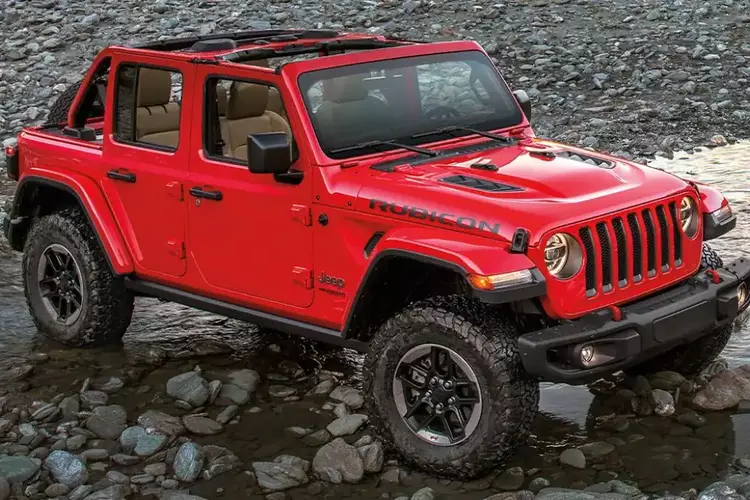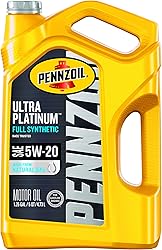This engine is often used in Jeep and Chrysler vehicles, and is known for its power and performance. If you are looking for an engine that will last you a long time, the 3.6 Pentastar is a great option.
The 3.6 Pentastar engine is a reliable and durable engine option for many different types of vehicles, with an expected life span of up to 200,000 miles. When properly maintained, this engine can provide drivers with years of dependable service. Proper maintenance is the key to maximizing the life expectancy of any engine, and the 3.6 Pentastar is no exception.
In this article, we’ll take a look at the expected lifespan of the 3.6 pentastar engine, as well as the recommended oil for the best longevity.
3.6 Pentastar V6 Engine: An Overview
| 3.6 Pentasta Engine | |
|---|---|
| Production years | 2010 – present |
| Bore size | 3.78” (96 mm) |
| Stroke size | 3.27” (83 mm) |
| Fuel type | Gasoline |
| Metarial | Cylinder block: Aluminum Cylinder head: Aluminum |
| Configuration | V |
| Number of cylinders | 6 |
| Valves/cylinder | 4 |
| Valvetrain layout | DOHC |
| Displacement | 3.6L; 219.9 cu in (3,604 cc) |
| Compression ratio | 10.2:1 |
| Horsepower | 283 – 305hp (211-224 kW)/ 6,350 – 6,600 |
| Torque | 251-269 ft-lb (340-365 Nm)/4,175-4,800 |
| Firing order | 1-2-3-4-5-6 |
| Engine oil capacity | 6.0 quarts (5.7L) |
| Oil change interval | 15,000 km/12 months |
The 3.6L Pentastar V6 is a 3.6L six-cylinder gasoline engine first introduced in New York at the 2009 New York Auto Show. It was designed to be used for the 2011 Dodge, Chrysler, and Jeep vehicles. The 3.6 Pentastar is one of the most advanced V6 engines, and as a result, has earned the trust of popular car brands out there. This Pentastar engine was on the top 10 engines in the US market for three consecutive years.

Credit: jasperengines.com
This powerhouse is rated at 305 horsepower, 270lb-ft of torque. However, there’s more to the engine than these numbers can tell. It features brilliant engineering and impeccable crankshaft that fosters unrivaled output and, most importantly, longevity in service. The engine is smaller, more fuel-saving, lighter, and more potent than its 3.5L predecessor. Moreover, it has a die-cast aluminum high-pressure cylinder block that has a 60-degree V-angle between cylinder banks. In addition, the cylinders have cast-iron liners that are meant to make them last longer.
The 3.6 Pentastar is a powerful engine and can handle a pretty massive boost compared to its competitors. It can safely handle 10-12 pounds of boost. Also, approximately 90% of max torque is achieved within the 1800-6350 rpm range. Above all, you get smooth operation and high efficiency at any rpm.
The 3.6L Pentastar utilizes a timing chain in place of a timing belt. The timing drive uses four chains, each of which is a “silent chain link” design to improve engagement with the sprocket thus reducing noise, vibration, and harshness.
This 3.6L Pentastars are still excellent engines and would make a quality engine choice even in the few years to come.
How many miles will a 3.6 pentastar last?
You might be wondering how many miles you might tally on the 3.6L Pentastar before encountering real big trouble. Or, you might be in the market for a used vehicle with the Pentastar engine and would like to know the number of miles left before experiencing engine problems? Then stick around; the next section has you covered.
Pentastar engines are known to be pretty much bulletproof. However, like all other engines, they share a few downsides here and there. However, on average, a 3.6L Pentastar engine can go for over 100,000 – 300,000 miles without experiencing a severe problem. What mainly determines the life expectancy of an engine:
- How good/bad the engine is used
- Routine service
- Maintenance practices.
Most people out there define the Pentastar as a high mileage engine. But, what is a high-mileage engine?
The average mileage of an average car for a year should be around 12,000-15,000 miles or about 40 miles per day. Anything above is high mileage. With proper maintenance, your vehicle can hit more than 200,000 miles. High-mileage engines come with their set of advantages and disadvantages. Nonetheless, they are generally better than their low-mileage counterparts.
Below are some comments of 3.6 Pentastar owners about its longevity:
“With proper maintenance the 3.6L will EASILY achieve 200 – 300,000 miles with no major repairs. Only thing I know that is a weak point for these engines is the radiator, and that was for the 3.6L in the Jeep.”
Smerberj – https://5thgenrams.com/community/threads/what-is-the-estimated-longevity-of-the-pentastar-v6.33649/
“100k miles on my 2017 Ram Pentastar. New gaskets on the oil cooler around 85k miles. Other than that, it’s been a great engine. I wouldn’t hesitate to buy another.”
KeithStone76 – https://5thgenrams.com/community/threads/what-is-the-estimated-longevity-of-the-pentastar-v6.33649/
“I have a 2013 Jeep Grand Cherokee with the 3.6 Pentastar. It has over 180,000 miles on it and still going great. I wouldn’t have any problem taking a long trip in it right now. It runs great. I have replaced the oil cooler and had the lifters and rocker arms replaced.”
SpikeMike – https://5thgenrams.com/community/threads/what-is-the-estimated-longevity-of-the-pentastar-v6.33649/
“We have a 2015 grand Cherokee with the 3.6. 110,000 miles on it and not had one issue. It’s a fantastic engine, and a great choice for what you’re looking for. If you want reliable go with that warlock you’ll be happy as a clam”
Finn5033 – https://5thgenrams.com/community/threads/what-is-the-estimated-longevity-of-the-pentastar-v6.33649/
Read more: Jeep 3.6 Firing Order [With Diagram]
What cars have the 3.6 Pentastar?
The 3.6L is an undoubtedly high-efficiency engine. As a result, the engine has gained popularity among several high-end sports cars. Here’s a list.

| Years/ Generations | Vehicle Models | Engine Type | Engine Longevity |
|---|---|---|---|
| 2011-present | Chrysler 300 | 3.6 Pentastar | 100,000 – 300,000 miles |
| 2011-present | Charger (GT, SXT Rallye Edition, SXT+ models) | 3.6 Pentastar | 100,000 – 300,000 miles |
| 2011-present | Challenger (GT, SXT Rallye Edition, SXT+ models) | 3.6 Pentastar | 100,000 – 300,000 miles |
| 2011-present | Durango (Limited GT, Citadel, Crew, Crew Lux, Express, SXT, and ACT Plus models) | 3.6 Pentastar | 100,000 – 300,000 miles |
| 2011-2015 | Jeep Grand Cherokee | 3.6 Pentastar | 100,000 – 300,000 miles |
| 2012-2018 | Jeep Wrangler JK | 3.6 Pentastar | 100,000 – 300,000 miles |
| 2012-present | Ram 1500 | 3.6 Pentastar | 100,000 – 300,000 miles |
| 2012-present | Ram 1500 Classic | 3.6 Pentastar | 100,000 – 300,000 miles |
| 2013-present | Ram ProMaster | 3.6 Pentastar | 100,000 – 300,000 miles |
| 2016-present | Chrysler Pacifica | 3.6 Pentastar | 100,000 – 300,000 miles |
| 2019-present | Jeep Wrangler JL | 3.6 Pentastar | 100,000 – 300,000 miles |
| 2020-present | Chrysler Voyager | 3.6 Pentastar | 100,000 – 300,000 miles |
| 2020-present | Jeep Gladiator | 3.6 Pentastar | 100,000 – 300,000 miles |
Bonus: Jeep Gladiator on 40S [Rubicon, Sport, Sport S, Overland]
Recommended oils for the 3.6 Pentaster engine
A 3.6 Pentastar engine needs 5W20 oil for proper functioning. However, the engine can also take 5W30 oil, depending on the conditions you will encounter during driving.
You may also ask yourself, what is the 3.6 Pentastar oil capacity?
The 3.6 Pentastar requires 6 quarts of new 5W20 oil change during a filter replacement. So here’s a quality oil refill for your 3.6 Pentastar that has been branded the best by most users. It’s the Pennzoil Ultra Platinum Full Synthetic Motor Oil.
The oil is not developed from crude oil, like most other oils, but natural gas. It also acts as a cleaning agent, as it helps eliminate any dirt from your pistons. A cleaner engine translates to better fuel economy in the long run.
Pros
- Best-in-class engine wear protection
- Reduced chance of engine-deposit formation
- Works perfectly on extreme temperatures
- 550 miles-per-annum fuel economy
Cons
- You can’t use it on both diesel and gasoline engines
Final thoughts
From the information in this article, you can see how the 3.6 Pentastar is a pretty good engine choice, especially when performance and longevity are your things. However, you might need a reminder that the lifespan of an engine solely depends on you as the driver. Therefore, it would be best to be cautious enough not to overwork your engine and service it regularly and pay attention to service bulletins.
Bonus: What’s The Ford V10 Life Expectancy?
Helpful Resources:



